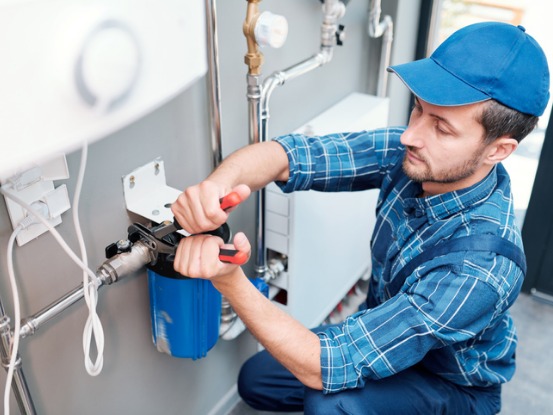Efficient Approaches for Overcoming Low Water Pressure in Your Home
Efficient Approaches for Overcoming Low Water Pressure in Your Home
Blog Article
The author is making a number of great pointers about 9 Reasons for Low Water Pressure in Your House in general in the article following next.

Low water pressure in your home can be an irritating problem, affecting everything from showering to cleaning meals. If you're experiencing weak water flow, there are several possible causes and remedies to explore. In this guide, we'll review usual factors for low water stress and practical actions to deal with the problem successfully.
Introduction to Low Tide Pressure
Low water stress takes place when the circulation of water from your faucets, showers, and other components is weaker than common. This can make daily jobs extra challenging and less effective. Recognizing the causes of low water pressure is essential to discovering the best service.
Typical Root Causes Of Low Water Pressure
Faulty Pressure Regulators
Stress regulators are accountable for preserving consistent water pressure in your house. If they malfunction, it can lead to low water stress or irregular circulation throughout your home.
Local Supply Of Water Issues
Sometimes, the trouble lies outside your home. Municipal water problems, such as main line leaks or maintenance job, can temporarily lower water pressure in your location.
Pipe Obstructions
Gradually, pipes can end up being obstructed with mineral deposits, debris, or debris, restricting the circulation of water. This is an usual issue in older homes with galvanized steel pipelines.
Deterioration
Corrosion within pipes can lead to leaks and decreased water stress. Rust buildup can constrict water flow, particularly in maturing plumbing systems.
How to Identify Low Water Stress
Examining Pipelines
Inspect noticeable pipes for indications of leakages, corrosion, or obstructions. Take note of any type of unusual audios, such as knocking or rattling pipelines, which could show issues within the plumbing system.
Consulting with a Plumber
If you're incapable to pinpoint the reason for low tide stress, think about hiring a specialist plumber to carry out a detailed assessment. They can determine underlying concerns and suggest appropriate remedies.
Checking Taps and Fixtures
Begin by testing the water stress at various taps and fixtures throughout your home. If the problem is separated to particular locations, it might indicate localized troubles.
DIY Solutions to Deal With Low Water Pressure
Flushing Hot Water Heater
Debris buildup in the water heater can restrict circulation and lower efficiency. Flushing the storage tank regularly aids get rid of debris and keep optimum efficiency.
Inspecting Pressure Regulator
Make sure that the pressure regulator is functioning correctly. Adjusting or changing the regulator can assist bring back correct water pressure throughout your home.
Cleaning Aerators and Showerheads
Mineral deposits can gather in aerators and showerheads, decreasing water circulation. Eliminate and cleanse these elements consistently to improve water pressure.
Cleaning Clogs in Pipeline
For minor clogs, attempt utilizing a plumbing snake or chemical drainpipe cleaner to clear obstructions in pipelines. Be cautious when making use of chemicals and comply with safety guidelines.
When to Call a Professional Plumber
If DIY initiatives fall short to fix the issue or if you presume substantial plumbing problems, it's finest to look for assistance from a licensed plumber. They have the expertise and devices to address complicated problems securely and effectively.
Preventive Measures to Preserve Water Pressure
Setting Up a Stress Booster
Take into consideration installing a pressure booster pump to enhance water pressure in areas with regularly low flow. This can be especially advantageous for multi-story homes or residential properties with high-demand components.
Surveillance Water Use
Be mindful of water usage behaviors and stay clear of overtaxing the plumbing system. Simple adjustments, such as incredible showers and washing loads, can aid keep appropriate water pressure.
Regular Upkeep
Schedule regular upkeep for your plumbing system to stop issues such as corrosion, leakages, and clogs. Dealing with minor issues early can help avoid more considerable fixings later on.
Final thought
Managing low water stress can be irritating, but determining the underlying causes and carrying out ideal solutions can restore optimal flow throughout your home. Whether it's cleansing aerators, evaluating pipelines, or consulting with a plumber, taking proactive actions can make certain a constant supply of water for your day-to-day demands.
FOUR WAYS TO FIX LOW WATER PRESSURE NOW
Turning on a shower or faucet only to find the water comes out in a sad, slow drizzle is never a good feeling. How exactly are you supposed to wash a pan or take a quick shower when it takes 10 minutes just to rinse off a little soap? The good news is that when your water pressure is bad, there's always a cause: typically one that can be easily fixed. Here are some of the most common causes of low pressure and what you can do to fix the issue:
DEBRIS AND MINERAL DEPOSIT BUILDUPS
If you notice low water pressure from just one or two of the fixtures in your house, the problem likely has to do with debris buildup. Water is full of minerals and other debris, all of which can accumulate in your pipes and on your fixtures. This can cause a blockage that affects how much water flows through. To fix this, try filling a small plastic bag with white vinegar, and use a rubber band to hang it around your showerhead or faucet. Let the head of the fixture soak for a few hours, and the vinegar should loosen the deposits.
WATER LEAKS
Leaks are another common cause of low water pressure. If water is flowing out of your plumbing through a hole or crack before it can reach your fixture, the pressure coming out of the faucet or showerhead will be lower. A plumbing professional is your best bet for finding and repairing a leak in your water supply pipes.
Leaks are another common cause of low water pressure. If water is flowing out of your plumbing through a hole or crack before it can reach your fixture, the pressure coming out of the faucet or showerhead will be lower. A plumbing professional is your best bet for finding and repairing a leak in your water supply pipes.
A VALVE ISSUE
If you have low water pressure throughout your home, check your main shut-off valve to make sure it's completely open. You may also want to see if there's a pressure-reducing valve installed. If there is, have a plumber help you adjust the settings to get the pressure you're looking for.
OTHERS USING WATER
Believe it or not, your low water pressure could be caused by your neighbors. If you notice low pressure at certain times of day, it may be because you and the people living next to you have similar schedules - when everyone is showering at the same time, the pressure will be lower in every home. Low pressure throughout the neighborhood may also be caused by an issue with your municipal water supply. If that's the case, call the supplier to see if they're working on the issue.
https://www.rotorooter.com/blog/water-leaking/low-water-pressure-fixes/

I stumbled upon that post on Low Water Pressure in the House? when doing research the internet. Are you aware of someone else who is excited by the topic? Feel free to promote it. Thanks for going through it.
Call Report this page